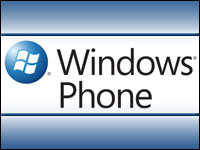
Microsoft is overhauling Windows Phone 8, which is still in development, to make it more competitive with market leaders iOS and Android, according to leaked information reported in PocketNow.
The mobile OS will add support for multicore processors, up to four new screen resolutions, and removable microSD card storage.
It will also support near field communications (NFC), the technology that enables e-wallets.
“This builds upon what Mango has,” Ramon Llamas, a senior research analyst at IDC, told TechNewsWorld, referring to Windows Phone 7.5.
Further, WinPho8 will share some of the components of Windows 8.
“It appears the integration between Windows Phone 8 and Windows 8 will be high, making both products more interdependent,” remarked Rob Enderle, principal analyst at the Enderle Group.
Microsoft did not respond to our request for comment for this story.
Likely Ingredients in the WinPho8 Soup
In addition to the features listed above, WinPho8 will provide Skype support, an expansion of camera capabilities, and the ability to connect automatically to carrier-owned WiFi hotspots, Enderle suggested.
Redmond will probably scrap integration with the desktop Zune client and replace it with a new sync technology which might be “closer to Microsoft Mesh than ActiveSync,” Enderle told TechNewsWorld.
Microsoft Live Mesh is essentially a desktop in the cloud that lets users store files online and sync them with files or folders stored on a user’s device. ActiveSync is a mobile data synchronization technology and protocol developed by Microsoft.
A new sync capability might let users sync and share content between their PCs, their phones and their Xbox consoles.
WinPho8 will likely add native BitLocker encryption — the 128-bit full-disk encryption Microsoft’s desktop OSes now offer.
Keeping Down Phone Bill Pain
WinPho8 will automatically give WiFi connections precedence over mobile broadband. This could be the result of its close meshing with Windows 8, which has a feature that automatically disconnects from mobile broadband and connects users to preferred WiFi networks instead.
The Local Scout feature of Bing Maps will enable users to locate nearby WiFi hotspots in real-time.
Further, WinPho8 will reportedly use a proxy server to feed pages to IE10. This will user server-side compression to cut the amount of data required to view websites by up to 30 percent.
Rushing Ahead to Catch Up
WinPho8’s suggested multicore processor support, multiple screen resolutions and support for NFC is “good to see because that’s where the market’s heading,” IDC’s Llamas opined.
Particularly, support for NFC “shows Microsoft’s keeping up with the [mobile] market in terms of keeping operating systems out there, and is also keeping up with Apple, Android and BlackBerry, which are talking about NFC,” Llamas stated. “Microsoft can ill afford to fall behind.”
Microsoft will likely beta WinPho8 in Q3, Enderle said.
Getting Some Market Love
Current Windows Phone devices languish well down the ladder in the global smartphone market, and Enderle contends that’s because Microsoft’s marketing strategy is inadequate.
“This isn’t a build-it-and-they-will-come market, and Microsoft have pushed the marketing out to the device makers,” Enderle said. “In a mature market, you need to make a sustained push to make inroads, and Microsoft has historically not had the willingness to do that so alone.”
A new OS is “just one piece of the puzzle to help grow Windows Phone’s market share,” IDC’s Llamas said. “You need a deep and broad portfolio of really good devices, products at a lot of different price points, a lot of marketing, and a lot of training for retail associates.”
On the other hand, WinPho8’s release is scheduled for this year, which is “heartening” because “this isn’t the old Microsoft, where they announce something and it takes 15 to 18 months to appear.”
That faster reaction might help.
Windows Phone devices have “very high satisfaction rates,” and that could help WinPho8 turn things around, Chris Hazelton, a research director at the 451 Group, told TechNewsWorld.
If WinPho8 can work tightly with Windows 8, the resulting streamlining of the movement of content and user data between the desktop and mobile devices means Microsoft “could see significant growth in its user base for Windows Phone devices,” Hazelton suggested.



















































